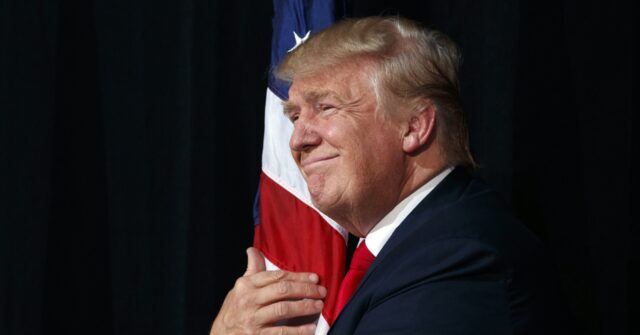Following the re-election of President Donald Trump, European media outlets erupted with expressions of disappointment and disbelief, highlighting an underlying tension between American electoral choices and European sentiments. Germany’s Die Zeit encapsulated the European perspective with a stark headline simply stating “Fuck,” effectively mirroring the general dismay across the continent. The publication likened the election night experience to witnessing a catastrophic event, suggesting that the American populace showed indifference to European concerns and values. This reaction emphasizes a growing sentiment in Europe that America’s electoral decisions are increasingly at odds with liberal democratic ideals as understood within many European contexts.
Many European outlets leaned heavily into narratives that questioned the health of American democracy, with comparisons made to historical empires that have fallen from grace. The article’s author provocatively suggested that despite perceptions of decline, American democracy has endured, drawing parallels with ancient civilizations to underscore the resilience of democratic systems. This line of reasoning reflects a broader anxiety within Europe over the implications of Trump’s presidency and the potential shift in global democratic norms, raising existential questions about the future of democracy not only in the U.S. but also worldwide.
In Spain, the left-leaning newspaper El Pais characterized Trump’s victory as emblematic of a “victory of disinformation,” underscoring the perception of a deeply polarized society in America. The paper highlighted Trump’s criminal background and his controversial policies, indicating that many voters either disregarded or accepted his flaws. France’s Liberation echoed this sentiment, suggesting that blaming half of the American electorate as “morons” would oversimplify the complex motivations behind their choices. The commentary provided insight into the allure of Trump’s populist message as he capitalized on fears surrounding economic protectionism and migration, showcasing how these themes resonated with a significant portion of the voting populace.
The responses from European political leaders have been notably measured compared to the reactions following Trump’s 2016 election. This time, they refrained from expressing overt hostility, reflecting a recognition of the geopolitical reality they face. The cautious approach contrasts sharply with the astonishment felt within European capitals during the previous election cycle, when many viewed a Trump victory as a distant possibility. For instance, Germany’s Chancellor avoided even mentioning Trump by name, indicating a diplomatic assessment that may be driven by necessity as they prepare to navigate future relations with an administration that appeals to nationalist sentiments.
In contrast to political leaders, media personalities expressed their frustration more openly. Notably, British journalist Emily Maitlis experienced a reprimand for her colorful language live on air while discussing Trump’s rising influence, underscoring the emotional turmoil many journalists felt as the results came in. Her outspoken comments, which included descriptors of Trump’s rhetoric as “batshit,” reflect a broader dissatisfaction within the media landscape, as journalists grapple with the implications of Trump’s presidency on both sides of the Atlantic. This moment highlights the intersection of media, politics, and personal beliefs in the face of significant electoral outcomes that resonate well beyond national borders.
Maitlis continued to voice her criticisms post-election, emphasizing the role of misinformation in bolstering Trump’s campaign. Her remarks about the credibility of Trump’s narratives point to a larger discussion within the media about the responsibility of journalists to counter falsehoods while reporting on political events. This situation presents a dual challenge: maintaining journalistic integrity while also addressing the deeply polarized environment shaped by leaders like Trump. The critical responses from European media and journalists demonstrate the urgency they feel in tackling an American political landscape they perceive as spiraling into divisiveness, ultimately leaving many in Europe grappling with uncertainty about the future of transatlantic relations under a Trump-led America.

